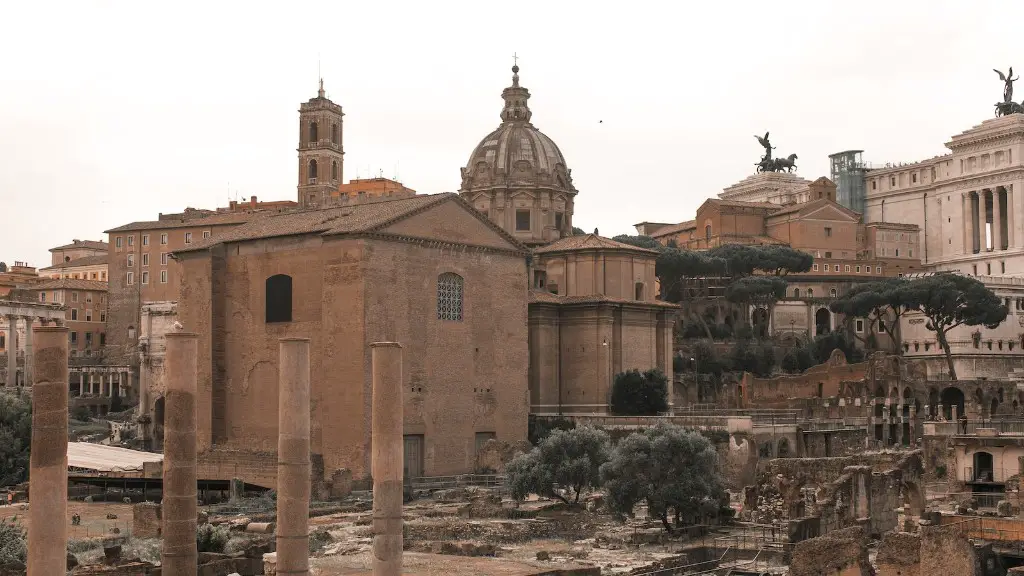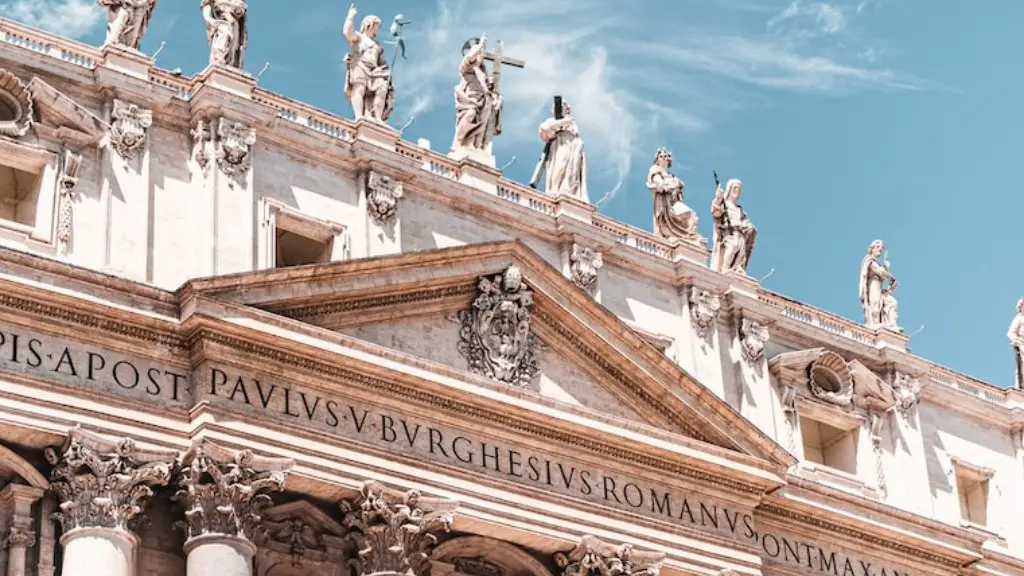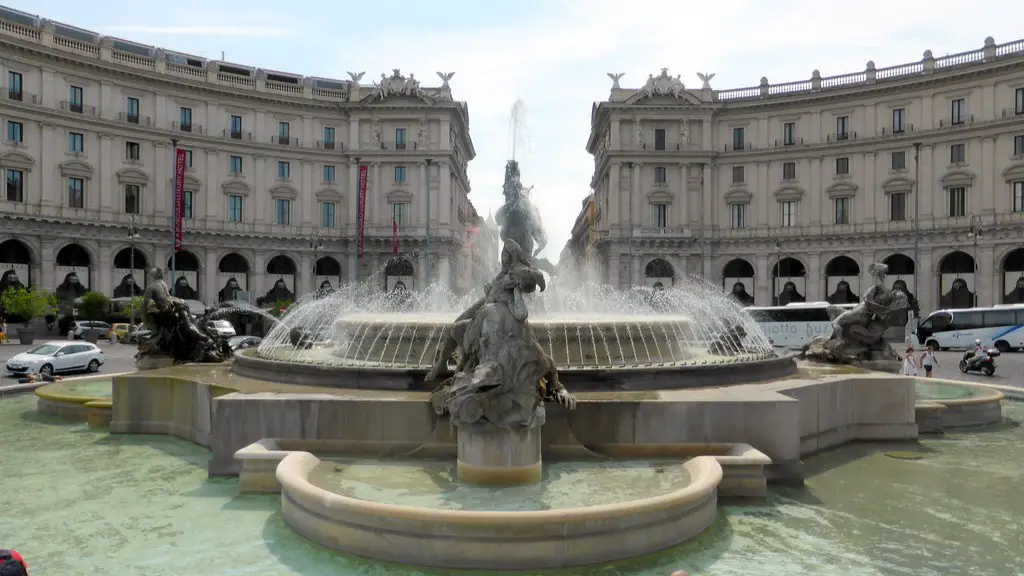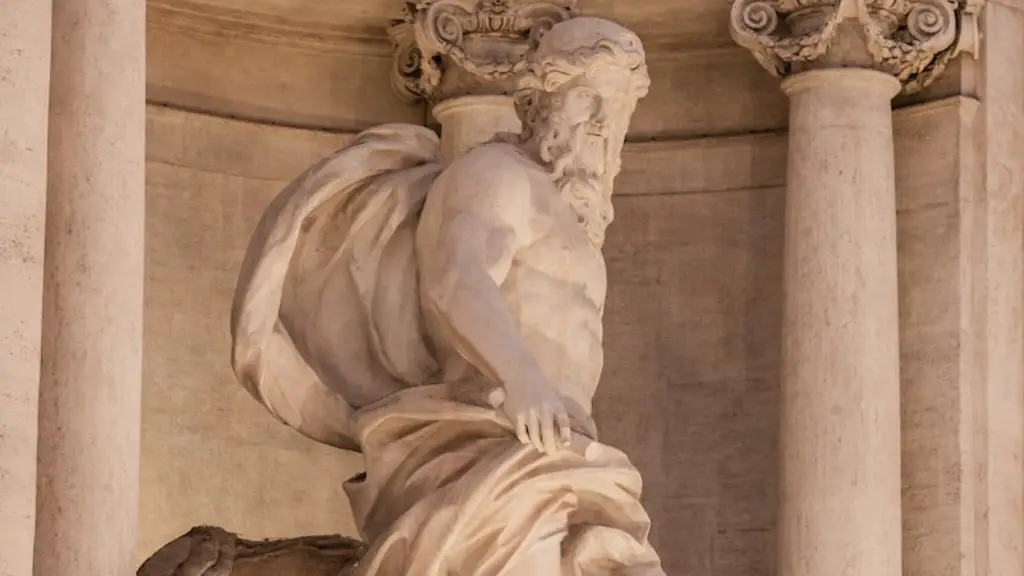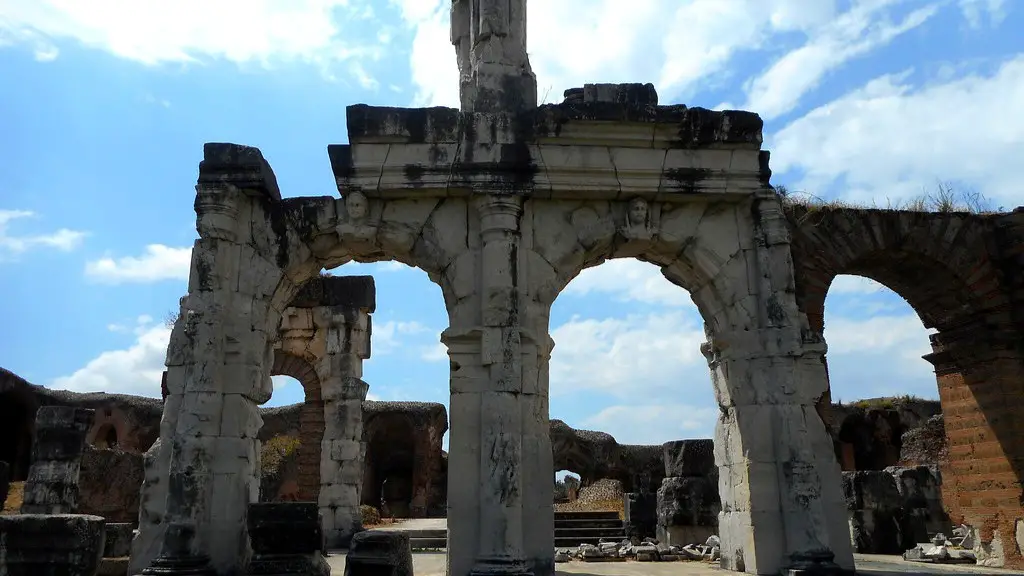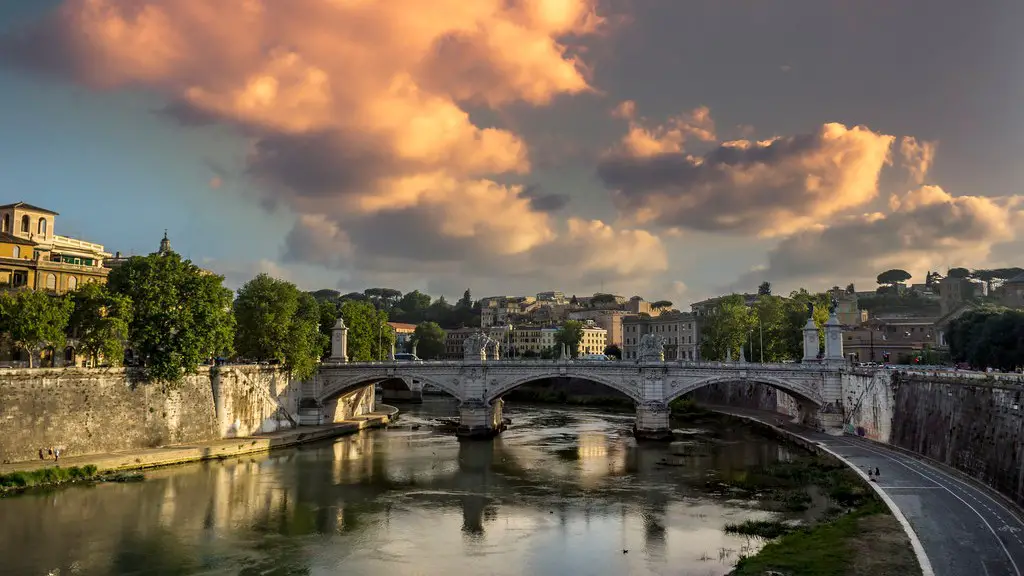The ancient Romans did not simply invade and conquer Britain – they brought with them their laws, customs, and language, which helped to shape the country we know today. Although the Romans left Britain over 400 years ago, their impact is still very evident. Here are some of the ways in which the ancient Romans changed Britain.
Although the Romans never conquered the entire island of Britain, they did manage to exert a significant influence on the country during their occupation. The most obvious change that the Romans brought to Britain was the construction of roads and public buildings. The Roman roads in particular were a major innovation, and their construction facilitated trade and transportation across the country. In addition, the Romans introduced new crops and farming techniques to Britain, which helped to increase agricultural productivity. Finally, the Romans also introduced a new system of coinage and a new form of government, both of which had a lasting impact on the country.
How did the Romans change Britain?
The Romans were a great civilization that left a lasting impression on the world. They brought many things to the lands they conquered, including urban life, roads, permanent military garrisons, centralised government, taxation, and their language, Latin. Later, they also introduced Christianity to the world. The Romans have left us a rich variety of written and archaeological sources that provide insight into their lives in Britain.
The most obvious impact of the Romans that can still be seen today is their buildings. Most buildings in Iron Age Britain were made of timber and were often round in form. The Romans replaced these with stone buildings, many of which are still standing today. From military structures such as forts and walls (including the spectacular Hadrian’s Wall) to engineering feats such as baths and aqueducts, the legacy of the Roman builders is still very evident.
When did the Romans change Britain
Roman Britain was a period in classical antiquity when large parts of the island of Great Britain were under occupation by the Roman Empire. The occupation lasted from AD 43 to AD 410. Britain was a very important part of the Roman Empire and was a major source of revenue for the empire. The Roman occupation of Britain was a period of great prosperity for the British people.
The Romans introduced many fruits and vegetables to the Britons that are still part of the modern nation’s diet. Some of these include asparagus, turnips, peas, garlic, cabbages, celery, onions, leeks, cucumbers, globe artichokes, figs, medlars, sweet chestnuts, cherries, and plums.
What happened to Britain after the Romans?
The Saxons were a group of Germanic tribes who settled in the south and east of Britain, in the late 5th and early 6th centuries. The Angles were a group of Germanic tribes who settled in the east of Britain, in the mid-5th century. The Franks were a group of Germanic tribes who settled in the north of Britain, in the late 5th and early 6th centuries.
The Romans realized that Britain was a potential goldmine and that if they could control the island, Rome would benefit greatly. The Romans invaded Britain in AD 43 and were able to successfully conquer and control the island. Britain became a prosperous Roman province and the Romans enjoyed great wealth from the resources of the island.
What are 3 ways the Romans changed Britain?
The Romans were a powerful force in Britain, and their impact is still felt today. They gave us new towns, plants, animals, a new religion and ways of reading and counting. Even the word ‘Britain’ came from the Romans. Britain had no proper roads before the Romans – there were just muddy tracks. So the Romans built new roads all across the landscape – over 16,000km (10,000 miles) in fact! Without the Romans, Britain would be a very different place today.
The Romans were one of the most powerful empires of all time. They are known for their military might, political acumen, and social institutions. The Romans conquered vast amounts of land in Europe and northern Africa, built roads and aqueducts, and spread Latin, their language, far and wide. The legacy of the Romans is still very evident in the modern world.
What changes were made by the Roman Empire
The Roman Empire shifted power from representative democracy to centralized imperial authority. Augustus’s reign gave emperors the ability to introduce and veto laws, command the army, and hold the most power. This dramatic shift changed the course of the Roman Empire and had a lasting impact on the world.
COVID-19 has changed our lives in many ways, some of which are good and some of which are bad. On the one hand, we now have access to things like aqueducts, sanitation, roads, irrigation, medicine, education, wine, public baths, safety, and peace that we never had before. On the other hand, we are now dealing with unplanned and unwanted changes that have forced us to adapt in ways that we never would have thought possible. It is important to remember that, despite the challenges that we are facing, we are still lucky to have all of these new opportunities and resources available to us. We just need to make the best of them and learn to adapt to the new world that we live in.
What did the Romans give us?
Many of the things that we take for granted in our modern world were actually introduced by the ancient Romans. They were responsible for our system of heating and sewage disposal, the roadways that we use, and even the way that we calculate distances and numbers. Our religion, language, and even the money that we use to pay for goods all have their origins in Rome. It’s amazing to think about how such a powerful empire has had such a lasting impact on our lives today.
The Romans brought Latin to Britain when they invaded in 43 AD. Latin was the language of the Roman empire and so became the language of government and commerce in Roman Britain. The native people of Britain continued to speak British among themselves, but for work, knowledge of Latin was required. This situation continued until the Romans left Britain in the 5th century.
What 3 Roman contributions still influence our lives today
Roman architecture was both functional and impressive, with many buildings and structures still standing today. The Roman roads, buildings, arches, and aqueducts are some of the most iconic and well-preserved examples of this ancient civilizations architectural prowess. These structures have served as inspiration for later buildings and structures around the world.
Roman culture has had a significant impact on modern western culture. In areas such as government, law, language, architecture, engineering, and religion, the legacy of Ancient Rome is still felt today. Many modern-day governments are modeled after the Roman Republic, and the Latinate language has become the dominant language of the western world. Roman architecture and engineering have also been hugely influential, with many modern buildings and bridges being based on Roman designs. Finally, Roman religion has also left its mark on western culture, with Christianity being the dominant religion in much of the western world.
What 4 innovations did the Romans bring to England when they invaded?
The Roman calendar is the calendar that we still use today. The census is the practice of counting a population. High-quality straight roads were introduced by the Romans. Central heating was also introduced by the Romans. Aqueducts are water bridges that were introduced by the Romans. Indoor plumbing was also introduced by the Romans. Towns were also introduced by the Romans. Cabbages were also introduced by the Romans.
The Germanic peoples who took over the Western Roman Empire after its collapse were familiar with Roman ways. Many of their soldiers had served in the Roman Army for 200 years, and they came from immediately around the Rhine and the Danube.
Who kicked the Romans out of Britain
Boudica was an ancient Celtic queen who led a revolt against Roman rule in ancient Britain in AD 60 or 61. She was a fiercely independent woman who was determined to fight for her people’s freedom. She was an inspirational leader and a passionate warrior. Her story is one of courage, strength, and determination.
The Roman’s occupation of Britain began in 43 AD and ended in 410 AD. The Western Roman emperor Honorius wrote to the cities of Britain in 410 AD, telling them to look to their own defence.
Warp Up
The Roman conquest of Britain began in AD 43 under Emperor Claudius, and lasted for almost four centuries until the last Roman troops left the island in 410. During this time, Britain was transformed by the arrival of Roman culture, technology and architecture. Roman towns and roads sprang up all over the country, and the once-barbaric Britons began to adopt Roman ways of life. Christianity also began to spread through Britain during the Roman period, further impacting the country’s culture. In many ways, the Romans changed Britain forever.
The Roman presence in Britain changed the country in a number of ways. The Romans brought new technologies and ideas with them, which British people adopted. The Roman way of life also had an impact on British people, who began to live in cities and towns and follow Roman customs. The Romans also left a lasting physical legacy in Britain, with their roads, buildings and public baths. Overall, the Roman period had a profound impact on Britain, both in the short and long term.
